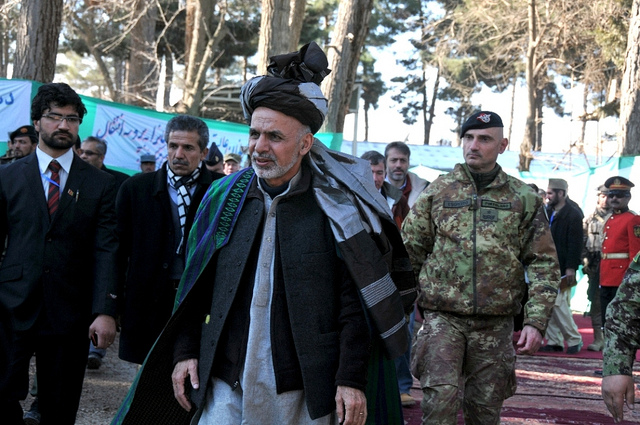
Ashraf Ghani Ahmadzai, the newly elected president of Afghanistan, studied Anthropology at Columbia University (Isafmedia/Flickr CC).
What does the newly-elected President of Afghanistan and President Obama’s mother have in common? Answer: anthropology. Both Ashraf Ghani Ahmadzai and Ann Dunham earned PhDs in Anthropology—she from the University of Hawaii at Manoa in 1992, he a decade earlier at Columbia University. And while this factoid might seem like the lead-in for the opening monologue on late-night television, it actually suggests something rather important for the future of global leadership.
According to Forbes magazine, anthropology is one of The 10 Worst College Majors . In fact, it ranks at number one. But Forbes, like many parents, understands the value of anthropology and higher education today solely in terms of paychecks. Pity. College is not a vending machine into which you plunk your change, pull a knob, and retrieve a candy bar—prepackaged, ready-to-eat, requiring little effort, initiative, or commitment. I understand well that higher education today costs a lot of change. Trust me on this. I speak as a college professor—and also as a parent of two children in high school, including a graduating senior. I feel squeezed from both ends: fretting about justifying through my teaching the exorbitant cost of higher education, and fretting even more about paying for it.
But then I reflect on the importance of a solid, well-rounded, informed education. I reflect on my own chosen field, and that of Drs. Ahmadzai and Dunham. Even a cursory glance around the world today evidences the shocking truth that our own age might very well be known as the Age of Culture Clashing. Iraq and ISIS, the Ukraine and the South China Sea, West Papua and South Sudan, Israel and the Palestinians, Blue States and Red States. Few parts of the globe today are not mired in seemingly intractable, often horrific strife over whose worldview, yours or mine, is a human right and a human wrong. Amid these relentless, spiraling struggles, not to mention global warming and the spread of Ebola, I offer a singular truism: that the leaders of today and tomorrow who can best negotiate solutions to global conflicts and crises will be those most skilled at moving between, and within, different cultures.
We need leaders who are not successful in commerce or law, waging war or maneuvering through parliaments. They’ve been in charge for some time now, and consider the results. Rather, we need global leaders who can speak to radically opposed perspectives, who know that one society’s Weltanschauung is another group’s wickedness but who nonetheless are trained to seek common ground. What anthropology does best is translate the terms of one reality into another, so that, despite the babel of humanity, we can nonetheless speak to our common humanity.
Anthropologists are not moral relativists. Explanation of cross-cultural differences is not justification. We are as firm in our ethical stances as the next person. But we hone our morality in terms of a global perspective, not a parochial one. And anthropologists know well that the first stage in any sincere effort to communicate across the often vast cultural gulf that separates Us and Them, and thereby build bridges for trust rather than troops, is to step outside our own sense of smugness and try, however difficult it is, to understand the slings and arrows of life from the other person’s perspective.
Surely President Obama’s successes both domestically and abroad have something to do with the anthropological outlook he learned from his mother. And President Ahmadzai now oversees a country of Pashtuns and Tajiks as well as Hazaras, Uzbeks, Turkmens, Nuristanis, Aimaks, and Baloch, never mind Sunnis and Shias, all striving for some semblance of normality after decades of war, oppression, poverty, and virtually every ill that has beset a nation over the past few centuries. Afghanistan will need the outlook of anthropology to emerge successful from this mess. And so do we all.
Eric Silverman is an anthropologist at Wheelock College in Boston.










